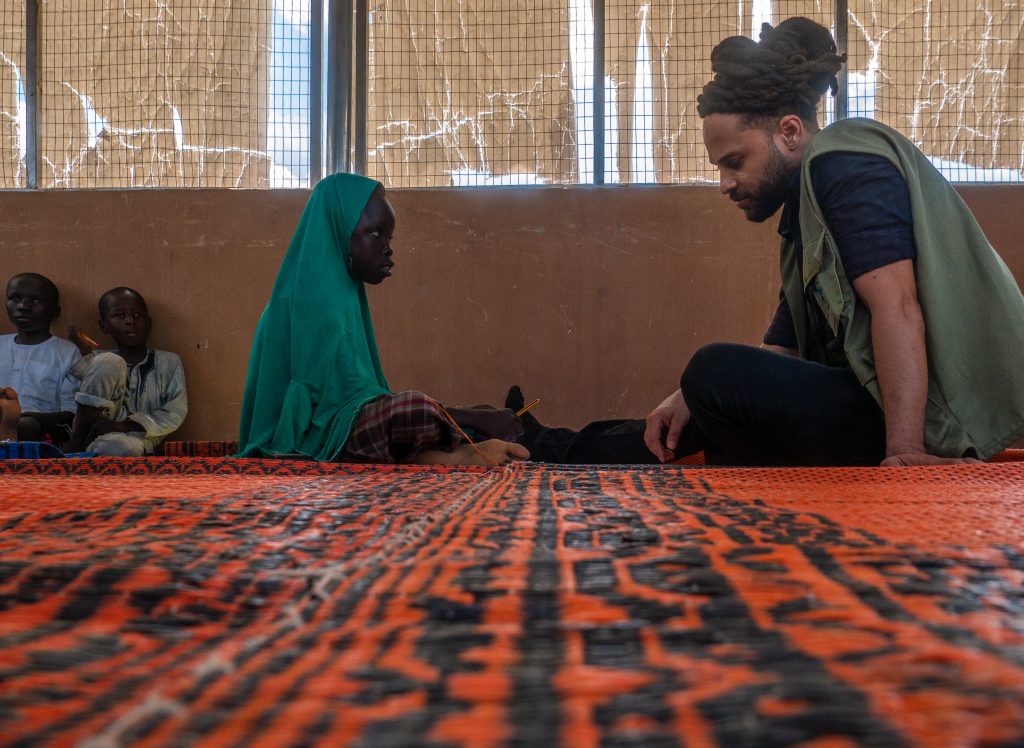The Neem Foundation Psychosocial workers under the RESILAC project have been conducting psychosocial support for beneficiaries in the host communities in Jere Local Government Area, Borno state. This is aimed at helping individuals and communities to heal the psychological wounds and rebuild social structures after negatively impacted by the insurgency in the northeastern region, and to also help change them from passive into active survivors.
The Neem Foundation psychosocial mobile team offers three different activities to the beneficiaries in the communities, these include:
- Mental health and psychosocial support for community members.
- Psychological First Aid (PFA) training for community stakeholders who are the first responders to the community populace during emergency.
- Problem management training for youths in communities engaged in livelihood support programmes.

Project activities
The goal of this activity is to transform trauma care delivery by taking mental health services to the ‘door-steps’ of underserved populations (especially women/girls and adolescent boys/youths) that have experienced psychological trauma occasioned by the insurgency. The objective is to reduce average wait-time as well as average travel distance to access mental health services. This has become essential, considering the difficulty in travelling from remote or rural areas to urban centres where the majority of government and non-government service providers are currently located. The purpose of psychosocial support and counselling is to transform trauma, enhance the emotional and social well-being of beneficiaries, provide them with coping skills to relieve their psychological distress, and positively influence their sense of belonging within their communities and successful reintegration. Our services take the form of group counselling sessions, which will provide beneficiaries grouped based on their shared experiences, a platform to come together and, with the support of counsellors and psychologists, work through their challenges and build resilience. For beneficiaries with higher level needs, one-on-one counselling is provided by psychologists to support their rehabilitation. Where required, Neem Foundation will identify and refer individuals requiring specialized support through existing mental health structures in Borno State.
Training for Community Leadership Structures and Key Stakeholders in the Community improving the capacity of community stakeholder groups and leadership structures to understand, promote and support the provision of psychosocial support in their communities is essential to the sustainability of this project. Such stakeholders, which include religious and traditional leaders, are respected and regarded as credible voices within their communities. Therefore, they are in the best position to expand the reach and acceptability of counselling services, and more importantly create awareness about the significance of such services as part of the process of reintegration. Neem Foundation alongside the SFCG Psychosocial Team Leader and the National Peace Advisor/ Trauma Expert organise training workshops intended to build the capacity of stakeholders to provide basic trauma-informed awareness, psychosocial support, counselling and resilience. By doing so, we improve the technical capacity of community stakeholders to more effectively engage and support their communities and ensure sustainability.
For the socioeconomic interventions implemented by RESILAC to be more impactful and sustainable, beneficiaries are engaged building their psychosocial and life skills. Through strengthening psychosocial skills, beneficiaries are trained to enhance their ability to deal with life stressors and resilience against trauma. Through life skills training, beneficiaries are taught practical skills for constructs such as self-awareness, interpersonal relationships, effective communication, problem solving, decision-making, empathy and critical thinking. These capacity building interventions are context specific to ensure that knowledge impacted is not only understood but relevant and practicable. This activity is implemented through the use of the Worls Health Organisation’s (WHO) Problem Management Plus (PM+) protocol.
